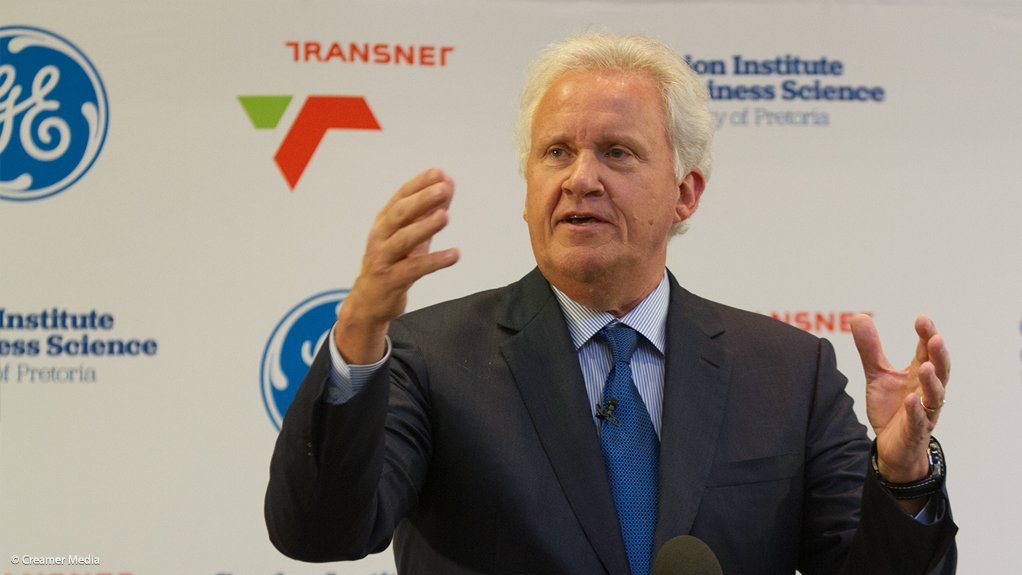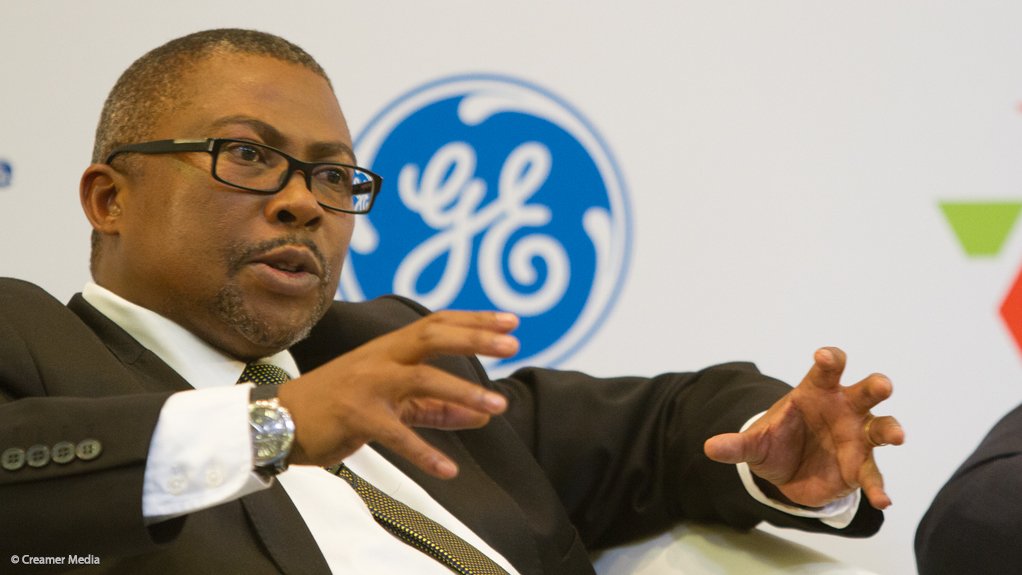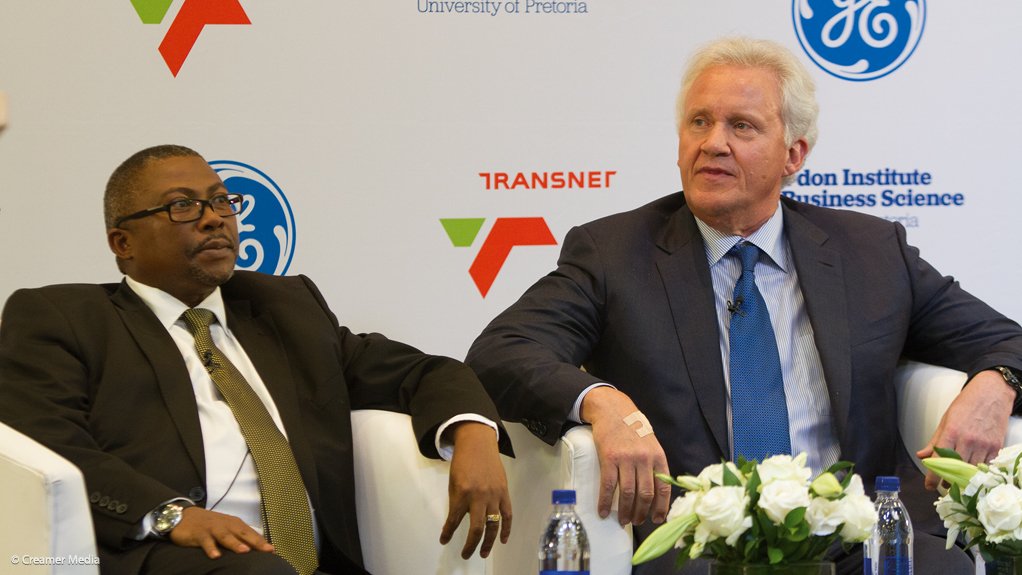The next wave of industrial productivity will be driven by digital solutions, GE CEO Jeff Immelt argued during a visit to South Africa this week, adding that industrial firms would, therefore, have little option but to rethink their strategies in this digital context.
The US multinational is in the process of recasting itself as a digital industrial company in anticipation of rapid growth in the so-called ‘industrial Internet’, also referred to at the ‘Internet of large things’, covering everything from locomotives and aircraft to power plants and factories.
Immelt forecasts that the market for industrial-Internet solutions could grow to $100-billion by 2025, amid a growing need among industrial firms for ways to reinvigorate flagging productivity.
“If you went to bed last night as an industrial company, you wake up tomorrow morning as a digital industrial company and that change is upon us,” he told an audience at the Gordon Institute of Business Science, in Johannesburg.
Technology developments were making it possible to glean data from machines and use that information to improve efficiencies and lower costs.
“In future, in a flight between Joburg and Cape Town, the aircraft engine will generate a terabyte of data,” Immelt averred, arguing that the information would be analysed and models developed to improve fuel performance, predict engine wear and reduce emissions.
He stressed that the industrial Internet was principally about taking existing assets and making them work better, which in the African context could translate into 5% to 10% power plant efficiency, or reducing the amount of fuel used in operating a diesel locomotive.
GE confirmed a partnership with South African State-owned freight logistics group Transnet to develop digital solutions for the transport sector, using GE’s Predict operating system.
Transnet CEO Siyabonga Gama said the digital platform would seek to foster logistics efficiency by improving visibility and digitising “laborious” paper-based processes, such as customs and inspections. However, both Gama and Immelt acknowledged that the success of the applications could also depend on the willingness of African governments to liberalise and facilitate cross-border trade.
“If we can just move from the 17% intra-African trade to about 30%, it will unlock so much value in terms of the number of jobs that can be created,” Gama said, arguing that the continent should concentrate on boosting regional trade in light of the anti-globalisation sentiment rising elsewhere in the world.
He also stressed that digitalisation was being integrated into Transnet’s R300-billion Market Demand Strategy, as well as its nascent plans for becoming a so-called fourth-party logistics provider. “By becoming digitally obsessed, we are setting our sights on growing beyond South Africa and into the continent, with the aim of becoming Africa’s largest transport logistics company.”
Edited by: Creamer Media Reporter
EMAIL THIS ARTICLE SAVE THIS ARTICLE
ARTICLE ENQUIRY
To subscribe email subscriptions@creamermedia.co.za or click here
To advertise email advertising@creamermedia.co.za or click here

















